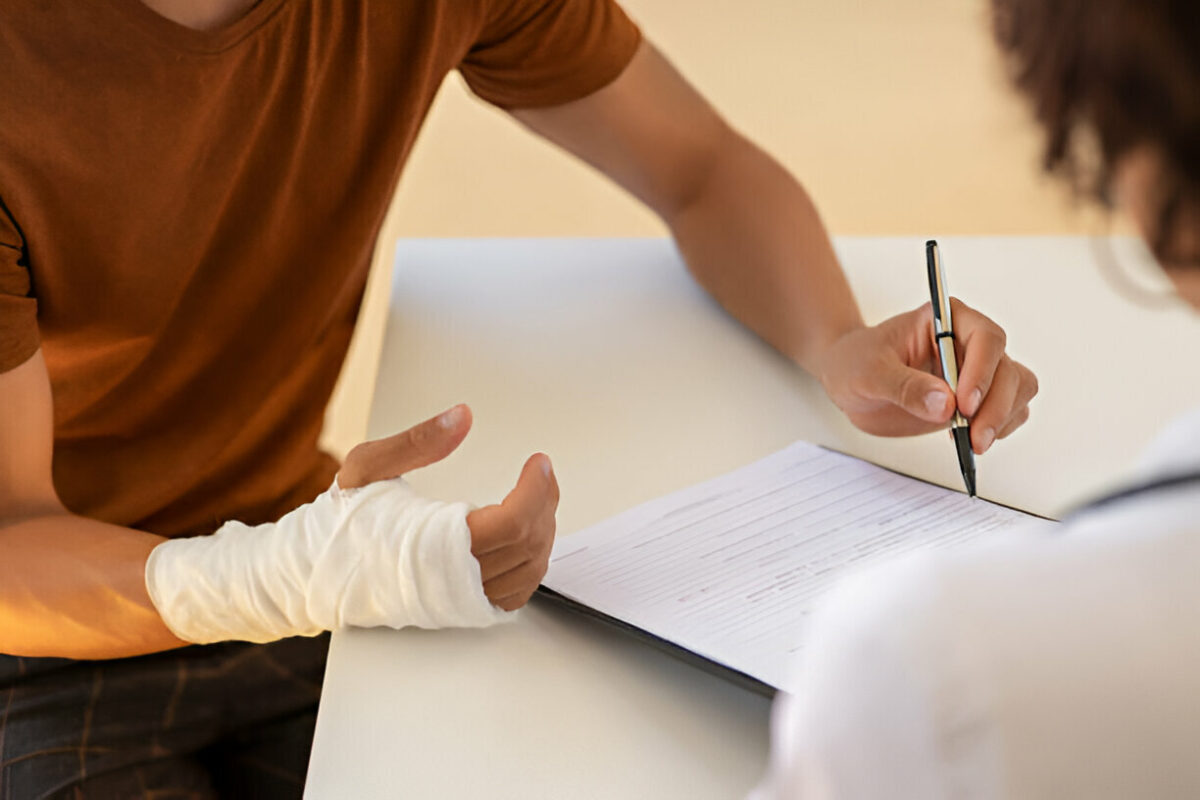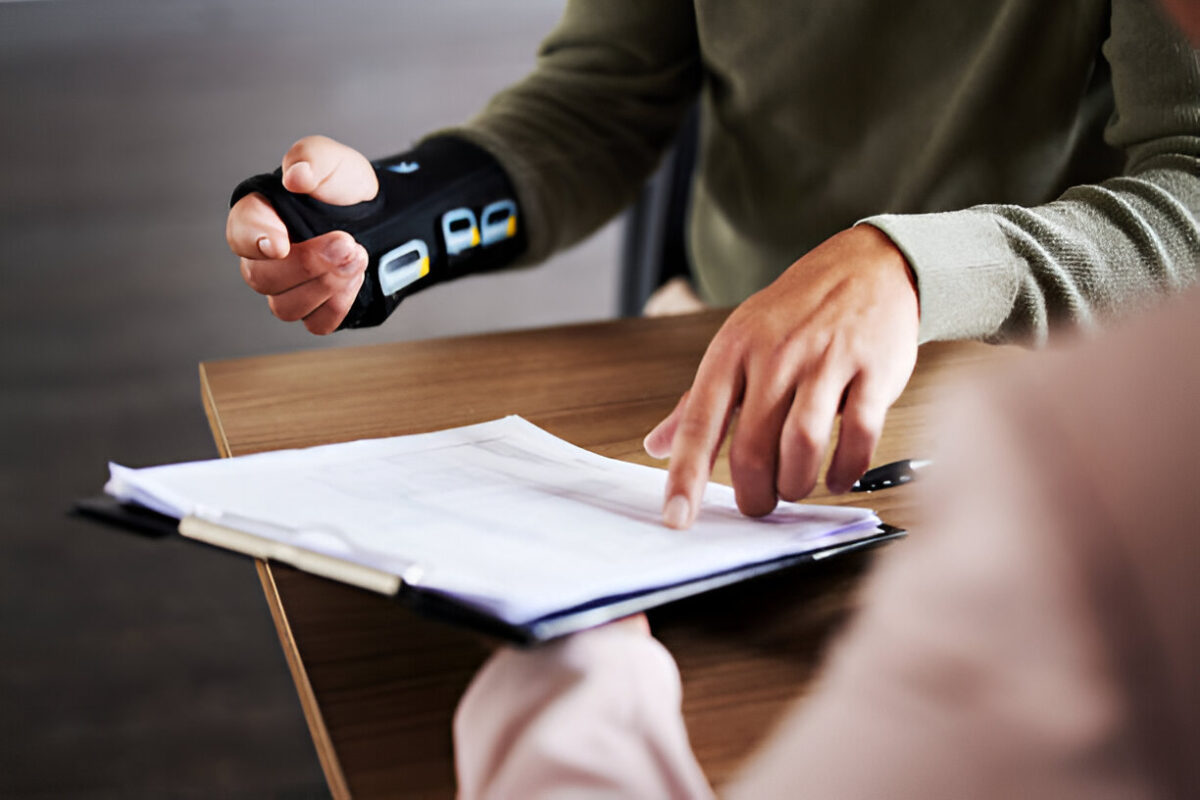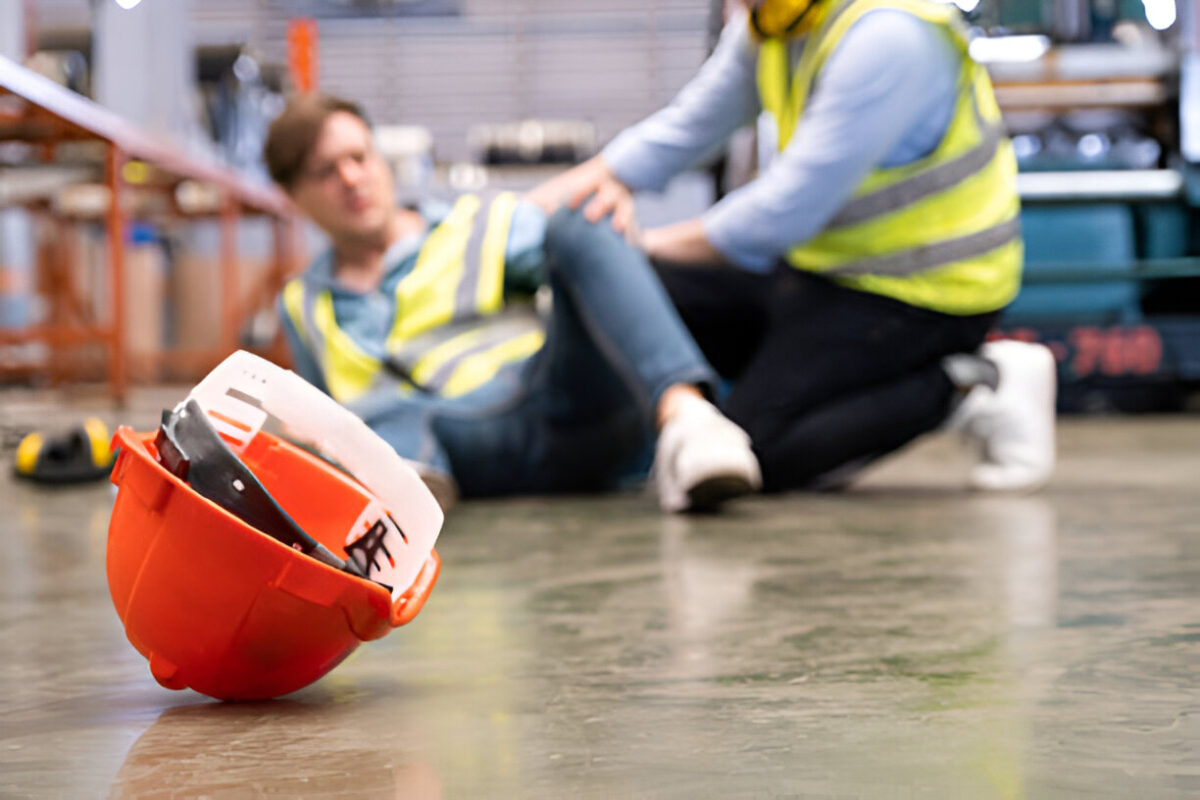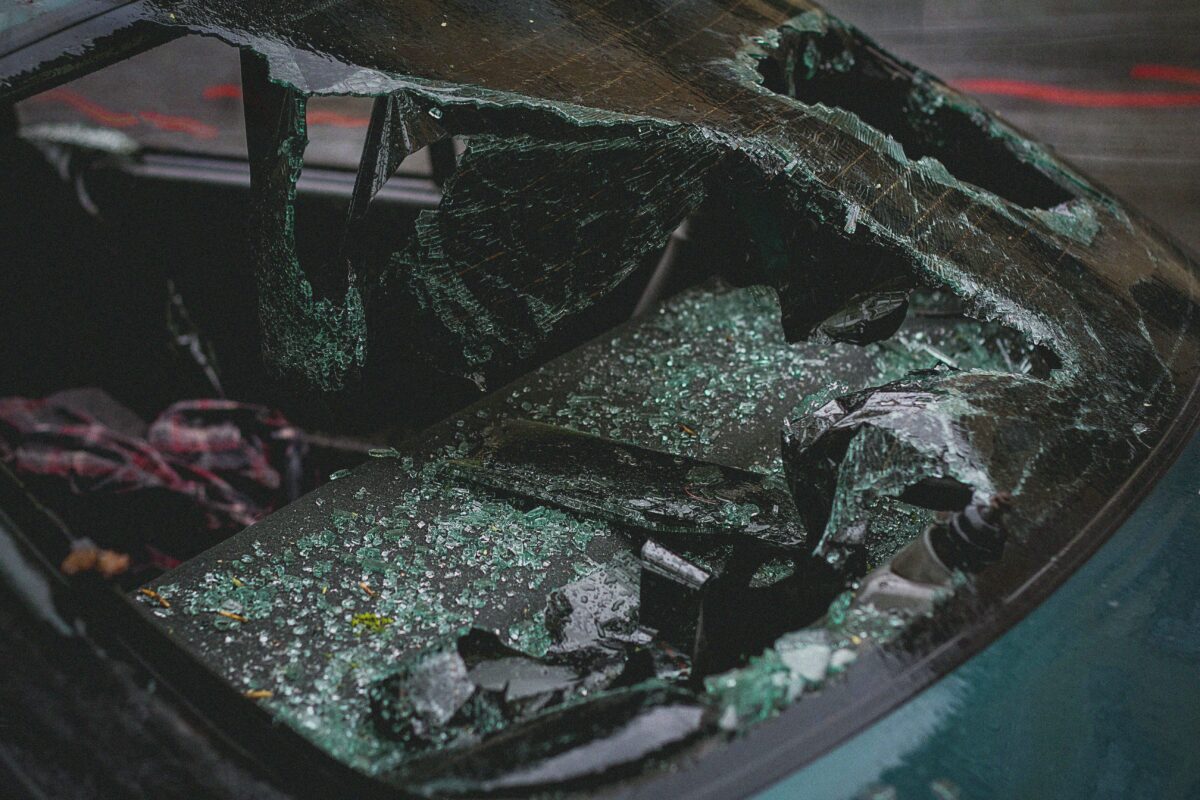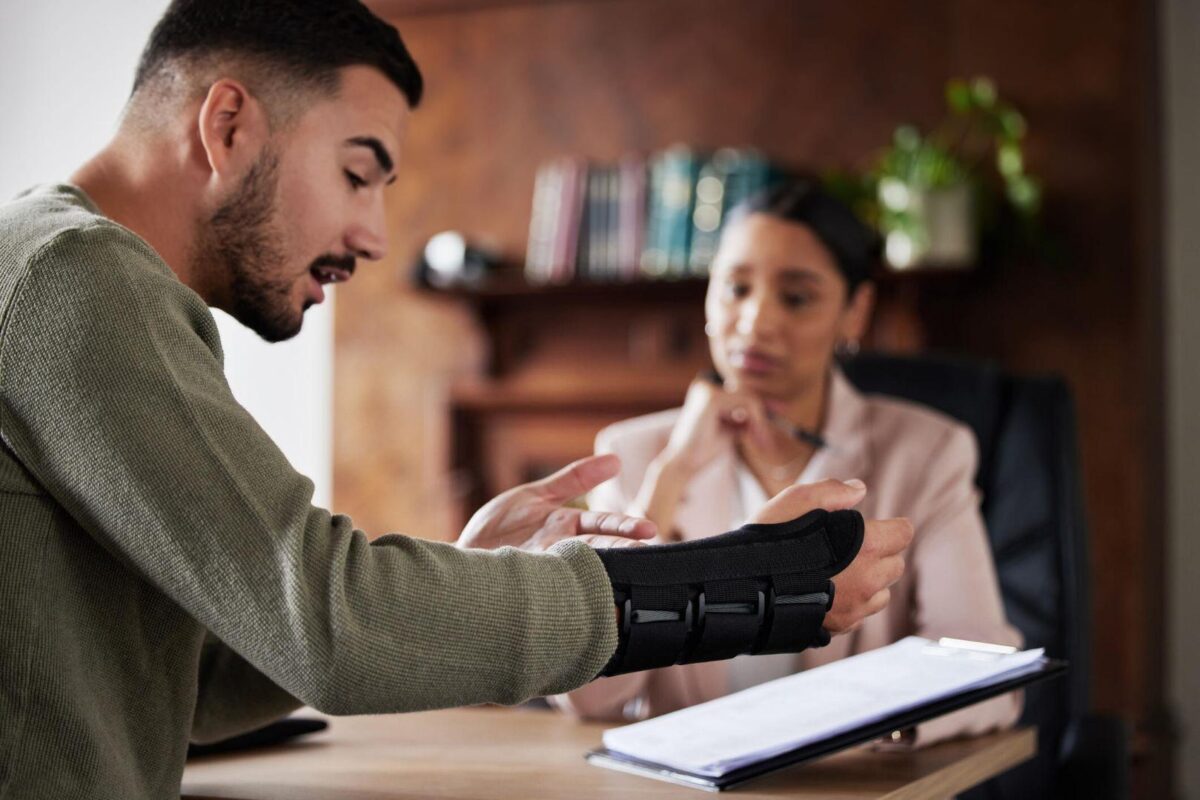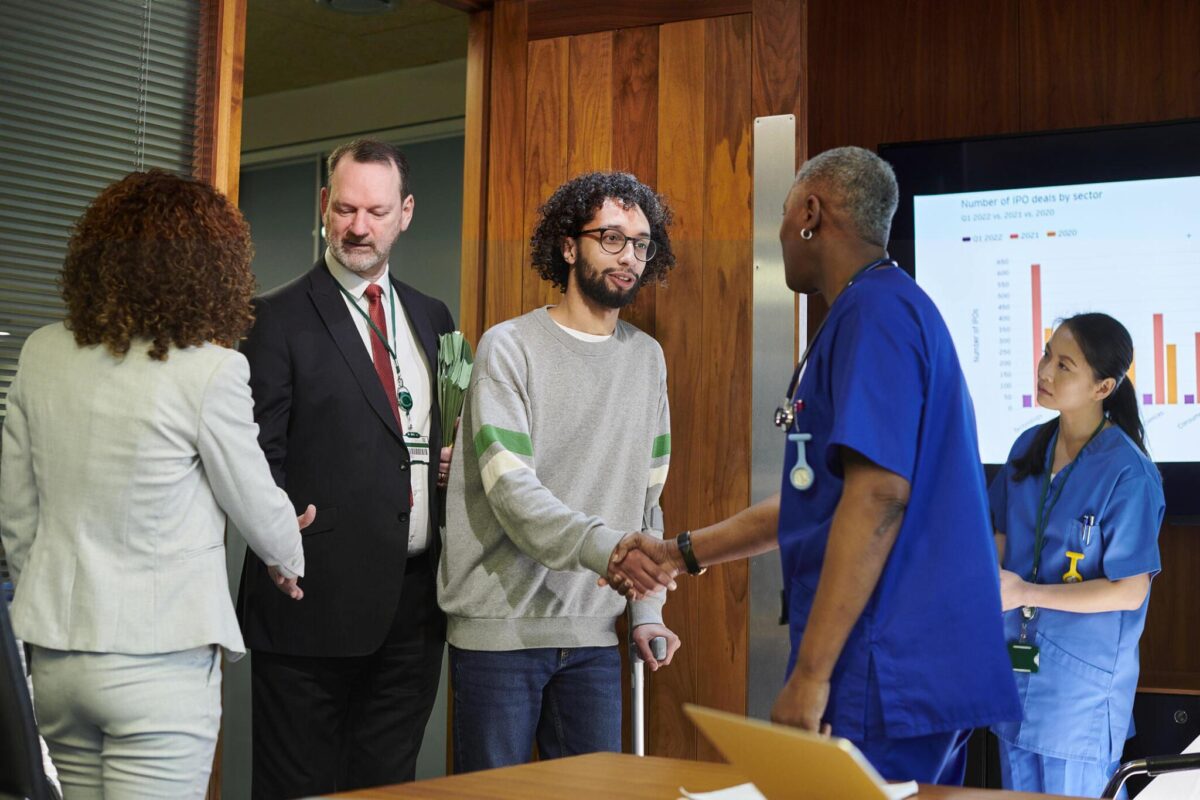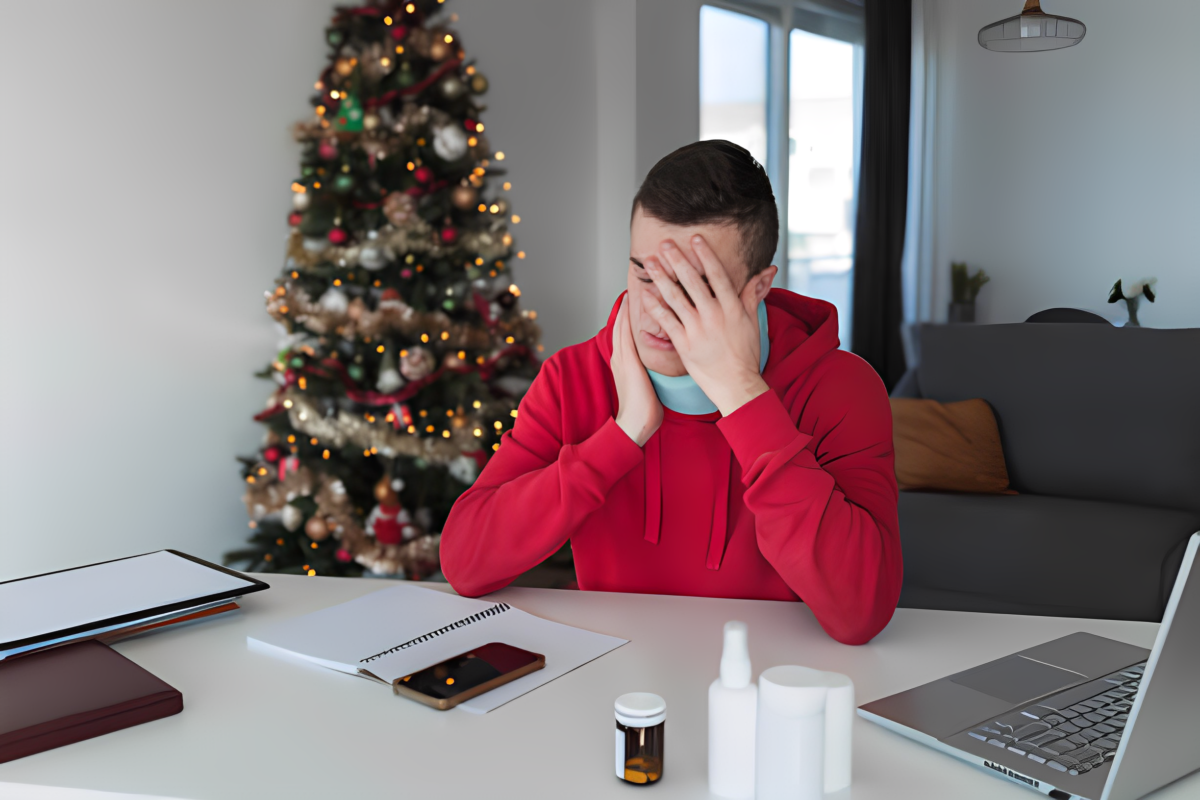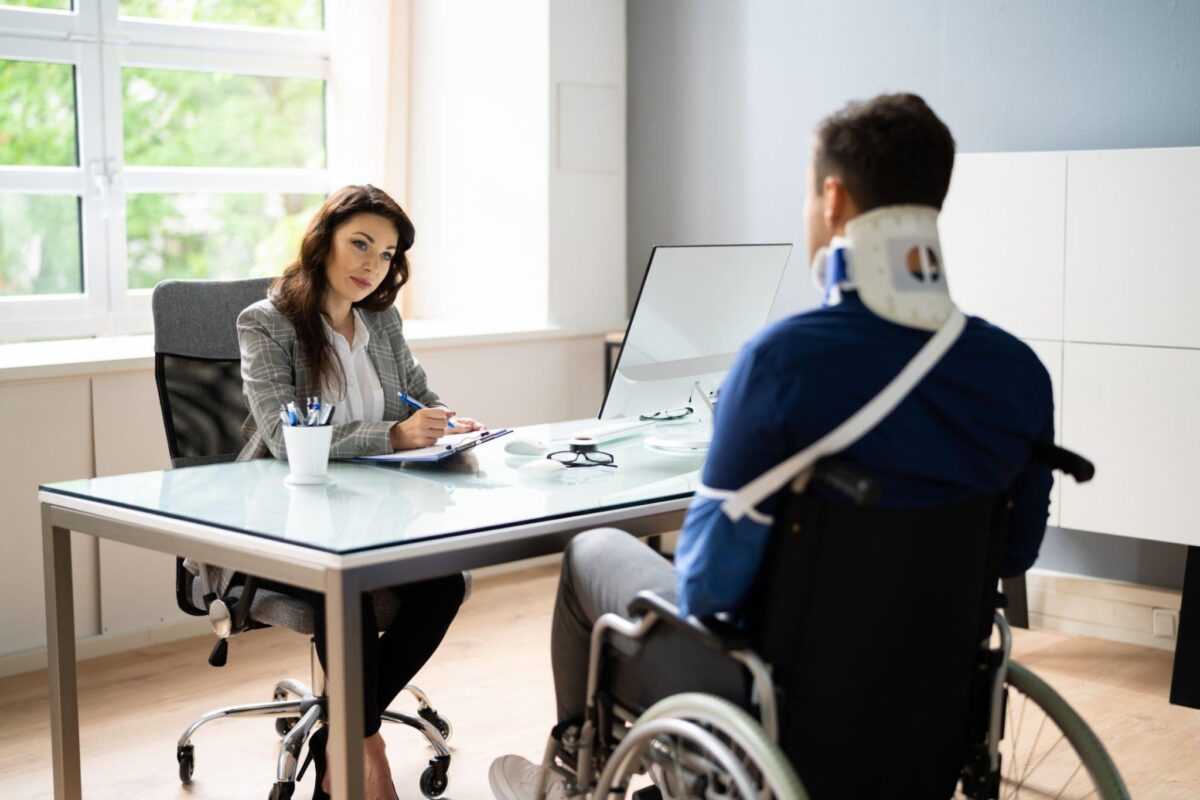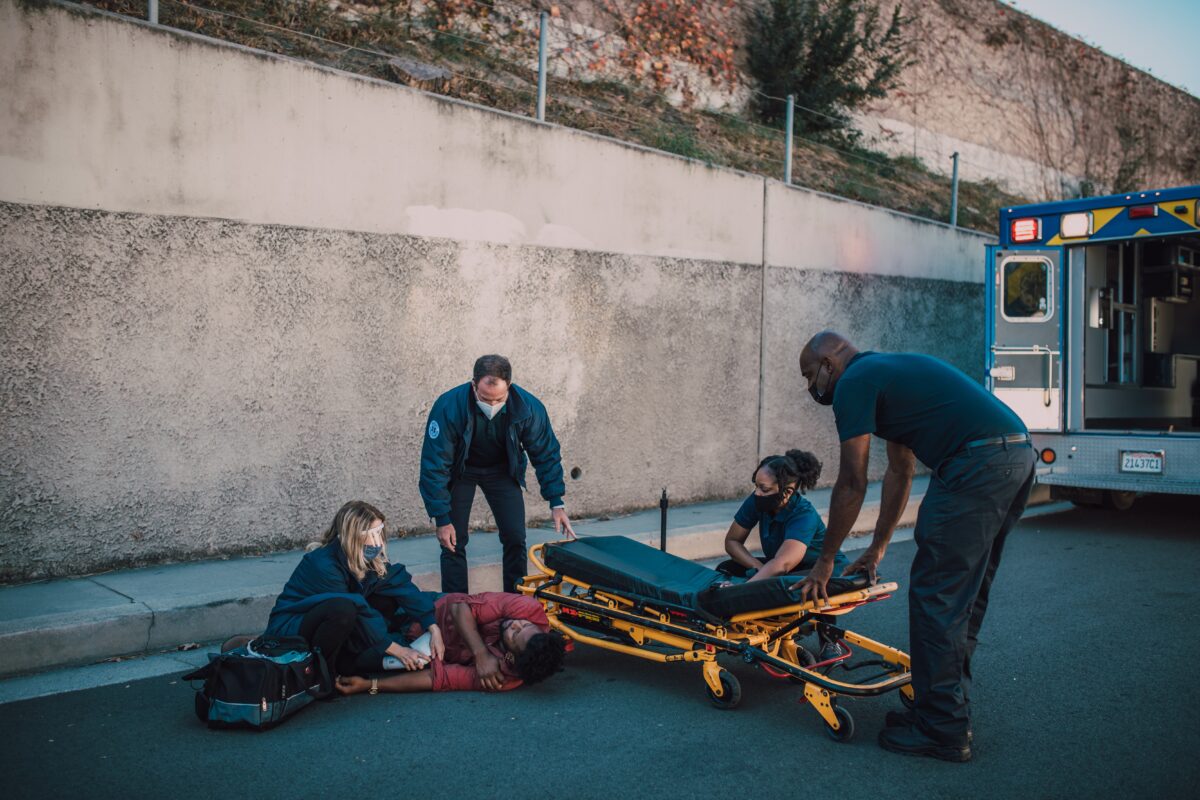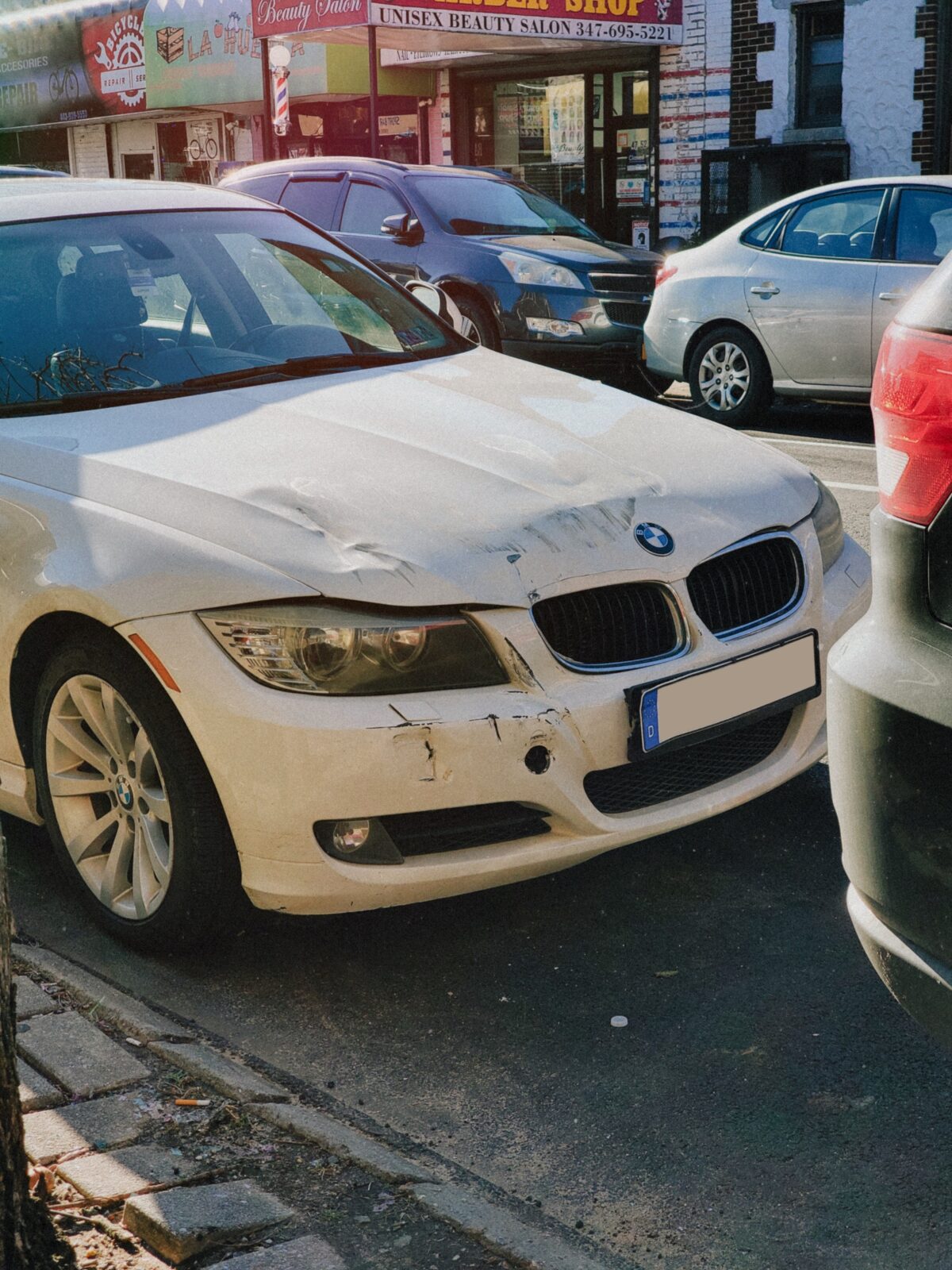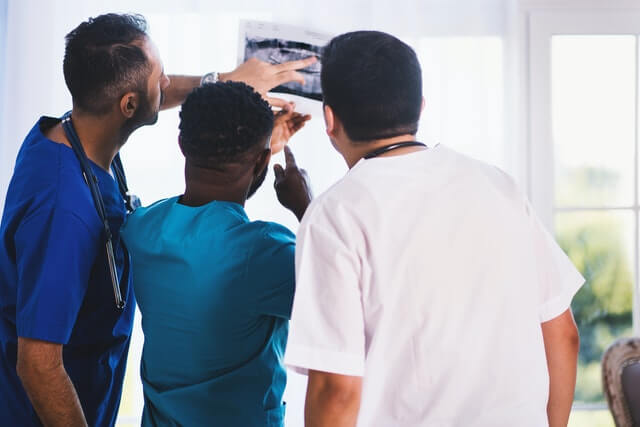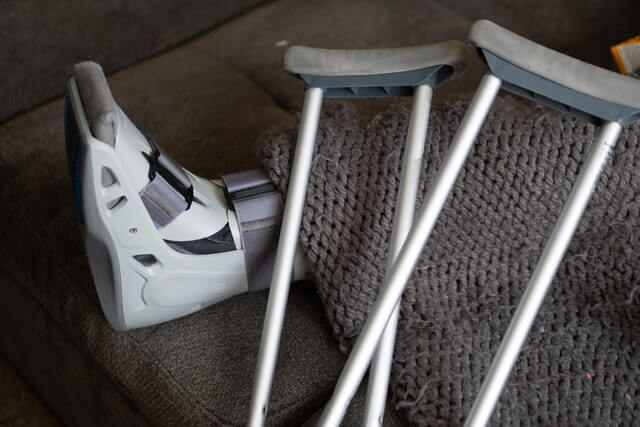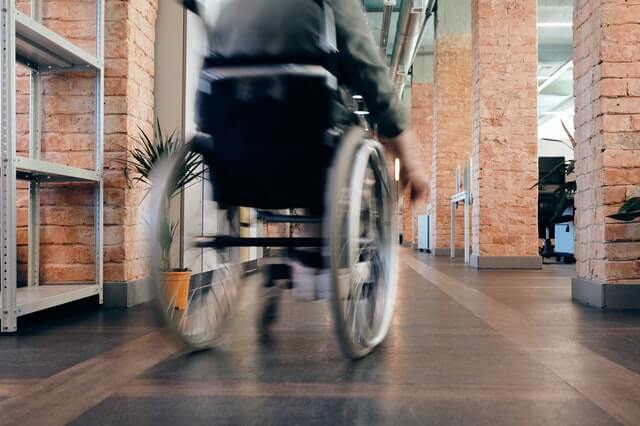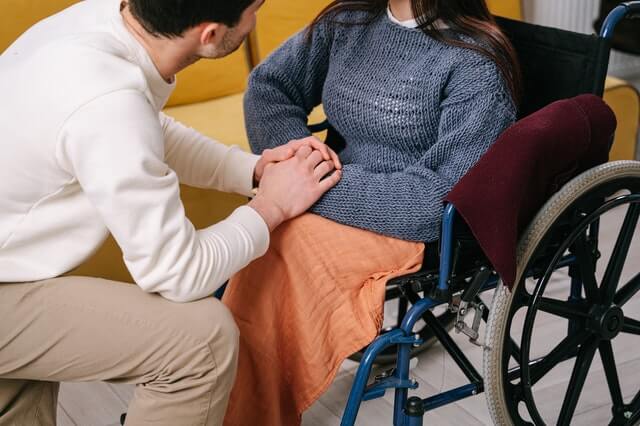One moment, you’re going about your day, and the next, you’re facing medical bills, lost income, and the stress of figuring out what to do next. If the accident wasn’t your fault, you might be wondering: What’s the average personal injury settlement worth in Florida? The answer depends on several factors, including the severity of your injuries, medical costs, and whether you’re able to work. Settlements can range from a few thousand dollars for minor injuries to hundreds of thousands—or even millions—if the injuries are severe. In fact, data from the Insurance Information Institute shows the average car accident settlement in the U.S. is around $23,900, though serious cases often result in much higher payouts. If you’re dealing with an injury claim, it’s important to understand what affects your potential settlement—things like medical bills, pain and suffering, and liability. In this guide, we’ll walk you through the key factors that influence personal injury settlements in Florida, typical payout amounts, and what you can do to maximize your compensation. What Types of Compensation Can You Recover After a Florida Car Accident? Medical Expenses Florida operates under a no-fault insurance system, meaning your Personal Injury Protection (PIP) covers up to $10,000 in …
Florida’s Laws on Personal Injury Protection (PIP) and Their Impact on Florida PIP Insurance Claims
“Florida’s auto insurance premiums are among the highest in the country, averaging $2,208 per year.” This eye-popping stat highlights how important it is to understand Florida’s Personal Injury Protection (PIP) laws. These laws are the backbone of the state’s no-fault insurance system, designed to streamline medical payments and reduce litigation. However, navigating the nuances of PIP can be challenging, especially when dealing with claims or denials. Let’s break down what Florida’s PIP insurance laws mean for you, their benefits, recent legislative attempts to change them, and how they impact insurance claims. What Does No-Fault System Mean? Florida is one of only two states that require drivers to adhere to a no-fault auto insurance system. The term “no-fault” doesn’t mean no one is responsible for an accident. Instead, it ensures that drivers turn to their insurance policies to cover injuries regardless of who caused the crash. This structure is meant to expedite payments for medical expenses and reduce the need for litigation. Focusing on immediate medical coverage, the no-fault system aims to ensure accident victims get the care they need without lengthy court battles over fault. What are the Benefits of PIP Law in Florida? Florida’s PIP law is designed to …
How Can I File a Claim for a Car Accident Brain Injury?
Car accidents are unfortunately common, but they’re not always just a “bump in the road.” In severe cases, these collisions can result in traumatic brain injuries (TBIs), changing lives in an instant. According to the Centers for Disease Control and Prevention, around 1.5 million Americans suffer from TBIs every year—and many are linked to car accidents. A brain injury from a car accident can lead to life-altering consequences, from memory issues and mood swings to physical impairments and financial struggles. Knowing how to file a compensation claim is critical if you or a loved one has experienced this. Filing a claim for a car accident brain injury in Florida can be a complex process. Understanding your legal rights and taking the proper steps are essential to obtaining the compensation you deserve to cover medical expenses, lost wages, and other damages. This guide outlines what’s involved in filing a claim, Florida’s statute of limitations, and why time is of the essence in personal injury cases. Statute of Limitations for Brain Injury Claims in Florida—and Why Timing Matters Florida law places a statute of limitations on personal injury cases, including traumatic brain injury (TBI) claims from car accidents. Generally, the statute of …
What are the Premises Liability Risks for Slippery Floors and Other Hazards in Florida?
Florida is known for its beautiful beaches, vibrant cities, and year-round sunshine, making it a popular destination for residents and tourists. However, with the state’s bustling public spaces and numerous businesses, the risk of accidents, particularly slip and fall incidents, is ever-present. Slippery floors and other hazards can lead to serious injuries, which may result in premises liability claims. Understanding the risks associated with such accidents and the legal framework governing premises liability in Florida is crucial for both property owners and visitors. What is the Statute of Limitations for Premises Liability in Florida? In Florida, property owners must maintain safe environments for all visitors. This duty is outlined in general negligence principles and Florida Statute § 768.0755, which covers slip and fall cases. To hold a property owner liable, the injured party must prove the owner knew or should have known about a hazardous condition and failed to address it. Constructive knowledge can be shown if the hazard existed long enough for the owner to notice and correct it or if the condition occurred regularly and was predictable. For instance, if a store doesn’t promptly clean a spill and someone slips, the store could be liable if it proves …
What is a Diminished Value Claim in Florida?
Car accidents can be a stressful and confusing experience. Beyond dealing with potential injuries and vehicle repairs, you also face another financial challenge: the diminished value of your vehicle. Even after your car is fully repaired, its market value can decrease simply because it has been in an accident. You can potentially claim compensation for this loss in value through a diminished value claim. In this blog, we’ll explore what a diminished value claim is, how it works in Florida, the types of diminished value, and the steps to file such a claim. What is a Diminished Value Claim? Let’s consider your car was valued at $15,000 before a collision. Following the required repairs, it may appear as good as new, but its market value might drop to $12,000 because of its accident history. The $3,000 difference is the diminished value. A diminished value claim allows you to seek compensation for this loss from the at-fault party’s insurance company. You might wonder why your vehicle isn’t worth as much after repairs. The main reason is that an accident history often makes a car less attractive to buyers. Even if it looks perfect, the underlying concerns about potential hidden damage, future …
What is Florida’s Windshield Replacement Law?
Navigating Florida’s roads poses distinctive obstacles, such as erratic weather and heavy traffic flows. One of the biggest problems that Florida drivers encounter is damage to their windshields, which is frequently the result of road debris, objects falling, or acts of vandalism. Fortunately, Florida law has provisions that help mitigate the costs associated with windshield repair and replacement. In this blog post, we will explore Florida’s windshield replacement law, its significance, and ways to make use of it. What is Florida’s Windshield Replacement Law? Florida Statute §627.7288 offers a significant advantage to drivers in Florida, especially those covered by comprehensive insurance. Under this law, if your windshield is cracked or broken, your insurance company must replace it without any cost. This includes no deductible or out-of-pocket expenses for the replacement. Additionally, drivers with combined additional coverage also qualify for complimentary windshield repairs. Despite these benefits, many drivers only learn about this statute when informed by their insurance provider or a repair shop. Given Florida’s extensive interstate highways and the frequent presence of large commercial vehicles, the likelihood of sustaining windshield damage is notably high. If your windshield sustains damage and you have comprehensive or combined additional insurance coverage, it is …
Social Media and Personal Injury Claims: Online Posts Can Damage Your Case
In today’s digital age, social media has seamlessly integrated into our daily lives. It’s where we share our experiences, connect with friends and family, and even seek support during challenging times. However, when it comes to legal matters, particularly personal injury claims, what you post online can significantly impact the outcome of your case. In this blog, we’ll explore why social media and personal injury claims don’t mix well and provide essential tips to safeguard your legal interests. Why Social Media and Personal Injury Claims Don’t Mix Social media platforms offer a window into our lives, showcasing everything from our happiest moments to our most challenging setbacks. While this can sometimes benefit personal injury claims by providing evidence of the injury and its impact, it can also work against you. Imagine you’ve suffered an injury at work and are pursuing compensation through a personal injury claim. You may think nothing of posting a photo of yourself enjoying a day out with friends, seemingly pain-free. However, such posts can be misconstrued by the opposing counsel to undermine the severity of your injury or suggest that you’re exaggerating your condition. In essence, what you post on social media can be used as …
How to Document Evidence Needed for a Personal Injury Claim
Navigating a personal injury claim can be a challenging journey, requiring meticulous documentation to substantiate your case. Understanding the crucial evidence needed for a personal injury claim is paramount in ensuring you receive fair compensation for your losses. In this blog, we will explore the key aspects of gathering evidence to support your personal injury claim and provide invaluable insights into the documentation process. Key Evidence Needed for a Personal Injury Claim Photographic Evidence Photographs and videos are potent tools when it comes to building a strong case. To maximize their impact, follow these guidelines: Capture the Accident Scene: Take numerous photos from different angles to depict the overall scenario. Include images of any contributing factors, such as traffic signals, road conditions, and weather for car accidents, and tripping hazards for slip and fall accidents. Document Injuries: Take detailed pictures of your injuries immediately after the incident and throughout the treatment and healing process. Daily Injury Progression: Continuously photograph your injuries during the healing process. This chronological documentation provides a visual timeline that can be crucial in demonstrating the severity and progression of your injuries. Medical Records and Bills Your medical records and bills serve as vital documentation, offering insight …
3 Common Holiday Personal Injury Cases and How to Stay Safe
As the holiday season approaches, the joy of festivities and the spirit of giving are in the air. However, amidst the celebrations, it’s crucial to remain vigilant about potential personal injury risks. Accidents can happen when we least expect them, and understanding common holiday-related personal injury cases can help you stay safe. In this blog, we’ll delve into three prevalent scenarios—premises liability, car accidents, and defective products—shedding light on the causes and offering tips to prevent such mishaps. 3 Common Personal Injury Cases That Happen During the Holidays Premises Liability Personal Injury Cases The hustle and bustle of holiday shopping draw thousands to malls and shopping centers, turning these places into bustling hubs of activity. With the increased foot traffic, business owners and staff find it challenging to maintain a hazard-free environment. Slip, trip, and fall incidents are not uncommon, and if they happen due to the property owner’s or occupier’s negligence, they fall under premises liability. Various factors contribute to these accidents, such as clothing or items obstructing walkways, defective escalators or elevators, soiled flooring, and even unsafe walkways and parking lots. To be eligible for compensation, you must prove negligence. Stay aware of your surroundings to reduce the …
When Do I Need to Hire a Personal Injury Lawyer
If you’ve been injured in an accident that was caused by someone else’s negligence, you may be asking when to hire a personal injury lawyer. In this blog post, we’ll provide information to help you understand when hiring a personal injury lawyer is necessary and how they can help you seek fair and just compensation for your injuries. We’ll cover topics such as the severity of your injuries, the other party’s liability, the insurance company’s tactics, and the number of parties involved in the accident. By understanding these factors, you can make an informed decision about whether or not to hire a personal injury lawyer. When to Hire a Personal Injury Lawyer? When you’re involved in an accident, it can be overwhelming and stressful. You may be dealing with injuries, medical bills, and the hassle of getting compensation from the responsible party or their insurance company. In these situations, it’s natural to wonder if you should hire a personal injury lawyer to help you navigate the legal process and fight for the compensation you deserve. If you’ve suffered serious injuries that have resulted in long-term disability or have significantly impacted your quality of life, it’s a good idea to consult …
How Much Is a Traumatic Brain Injury Worth?
Wondering how much is a traumatic brain injury would be worth? This article shares information about calculating damages for traumatic brain injuries. A traumatic brain injury or TBI can have devastating effects. The most common cause of death and disability in children aged 15 to 44 is traumatic brain damage. Some of the impacts they may cause can be subtle, but others are not. Therefore, it is important to be proactive in pursuing brain injury compensation because if you don’t, you could suffer various health and financial problems. What is a Traumatic Brain Injury? A traumatic brain injury (TBI) is a severe injury to the brain that can cause significant long-term problems. The most common type of TBI is an accident that causes the head to hit something hard, such as the ground. Other kinds of TBI include being hit in the head by a ball or being shot. Even mild TBI can cause long-term problems, including memory loss, trouble concentrating, and difficulty speaking. How Much Is a Traumatic Brain Injury Worth? There is no way to tell how much your case will settle for, but it will likely be between $100,000 and $7 million in the worst cases of …
In A Rear-End Accident? Here’s How An Attorney Can Help
Your day has shifted from normal to disastrous in the blink of an eye. One minute you’re sitting at a stoplight, enjoying the quiet of your own thoughts, and the next minute you’re in a rear-end accident by a careless driver. The force of the impact sends your head whipping back and then snapping forward, resulting in excruciating neck pain. In addition, your vehicle is damaged, and you’re not sure how you’ll get to work or take care of your errands for the day. You may be tempted to exchange insurance information with the other driver and be on your way; however, it’s important to take a few moments to assess the rear-end accident and make sure you are protected. What to do After a Rear-end Collision Injury? According to the National Highway Traffic Safety Administration (NHTSA), river mistakes cause approximately 94% of traffic accidents. After being involved in a rear-end collision, it is important to take the following steps: Take photos of the damage: Taking pictures of the damage from an accident is important because you could not know that there’s much more damage than a scraped bumper or cracked taillight. This can include damage to the alignment, frame, …
Car Crash Internal Injuries Can Be Devastating To Your Health And Finances
Many people who have been in a car wreck can feel that the trauma was not the end of their challenges. Managing the pain and injuries of your internal organs, skin, ligaments, and bones can be very difficult. You might be out of the hospital and back at work in a few days, but you may still be dealing with the aftermath of a car crash. In this article, we’ll look at some common car crash internal injuries, what they mean for you, and how you can best prepare for them. Types of Internal Injuries Injuries in car crashes can be devastating both to your health and finances. Here are three of the most common types of internal injuries: head, torso, and extremities. Head Injuries If you’re injured in a car crash with a head injury, you may experience nausea, vomiting, confusion, loss of consciousness, seizures, or even brain damage. If you’re pregnant, your unborn baby can also be affected by a head injury. Torso Injuries If you’re injured in a car crash with a torso injury, you may experience intense pain throughout your body and difficulty breathing. In addition, damage to internal organs like the lungs and heart can …
Injured? Suing a Landlord for Negligence May Be Your Best Option
If you are injured in your rental, suing a landlord for negligence may be your best option to cover your bills. Here’s what to know. For a tenant to succeed in their suit against a landlord, they must first demonstrate that the landlord’s actions (or inaction) were naturally and foreseeably responsible for the tenant’s injury. There is no automatic liability for landlords in situations of injury suffered by tenants while renting from them. A landlord is typically liable for tenants’ injuries only if their actions (or inaction) caused the injuries or contributed to them. Renters who sustain personal injuries may be able to recover damages from their landlords. Tenant personal injuries can cause both physical and emotional harm. The tenant can turn to the court for a personal injury lawsuit if they were injured because of a variety of reasons, including a fire in the building, a fall that occurred because of deteriorated steps, insect infestations, lead, mold, faulty repairs, carbon monoxide, vermin, and criminal offenses, including rape, assault, and robbery. In the event of landlords being unresponsive, ignoring, or unconcerned about the safety of their properties, tenants may be in danger of getting injured. Despite your lease …
How Many Slip and Fall Cases Go to Trial?
How many slip and fall cases go to trial? This article explores some of the things you should know when pursuing damages. Accidents involving slips and falls bring a negative mental and physical shock. Accidental falls are among the leading causes of accidental injury. A fall can leave you with severe injuries, expensive medical bills, time away from work, and possibly losing your job. If you suffer a fall, you may receive financial assistance to help cover your accident-related expenses. Have you fallen victim to a slip and fall accident? Will you be facing a trial in the near future? Do you want to know how many slip and fall cases go to trial? Most slip-and-falls are never tried in court. Knowing how many trials occur helps you prepare for your case if you are a victim. If you are bringing an insurance claim or a lawsuit, you will need substantial evidence and proof. If you were injured on a store or property owned by a negligent party, you must prove it. Accidental injuries caused by slips and falls Slip and fall accidents commonly occur in the workplace, retail stores, parks, offices, or apartment buildings. A variety of factors …
When to Call a Lawyer After a Car Accident
Car accidents are a common occurrence, and it can be difficult to know when you need assistance from a car accident lawyer. It may depend on the circumstances, but this blog will explore potential situations where hiring a lawyer could make sense. We’re often asked when you should call a lawyer after a car accident. It can be confusing to decide whether to get a lawyer involved in your case from the very beginning or wait until later. After all, insurance companies love to take advantage of those who don’t know their legal rights. The good news is that we’ve created this blog post for those questions and issues so that you can have an easier time making that decision and knowing what your options are. When to Call a Lawyer After A Car Accident Having a lawyer after an accident can be a huge help. A skilled lawyer will be able to prove your case and make sure you’re compensated for your losses. If you have any injuries, a lawyer can also help you recover the cost of your medical bills. If you find yourself in any of the following situations, you should absolutely consider contacting an attorney. …
What Is the Average Value of a Bodily Injury Claim Settlement
What is the average value of a bodily injury claim settlement? Injuries are a common occurrence in life, and when they happen, you might be wondering what the average bodily injury claim settlement is worth. Find out how to answer this question with this blog post. Injury claims are a costly type of monetary settlement that most people will go through at some point in their life. With the rise of self-driving cars and rideshare services as well as the continuous increase of drivers, it is increasingly likely that you will be in an accident at some point. This article breaks down the average value of a bodily injury claim settlement so you can be prepared. The Value of Bodily Injury Claim Settlement Between 2010 and 2019, the average value of a bodily injury claim settlement ranged from $14,406 to $18,417, increasing steadily each year. Some bodily injury claims, such as lost wages, can be quantified. Other types of personal injury claims, such as pain and suffering, are not easily measured in monetary terms. In order to get a better understanding of the value of a bodily injury claim, it is best to find out what some general guidelines are …
How to Prove Causation in Negligence: 4 Steps to Follow After an Injury
Knowing how to prove causation in negligence cases can help you get the settlement you need to cover expenses related to your injuries. Follow these four steps. Every successful personal injury lawsuit starts at the same place—proving causation between negligence and damages. When you are hurt because of the reckless or negligent actions of another party, you deserve a settlement that covers the cost of your injuries in full. With the help of an experienced personal injury attorney, you can determine whether you have a viable case that is worth pursuing. Once you have established that you have a case, you will need to follow certain steps to prove the causation between the other party’s negligence and the damages you sustained. What is negligence? Negligence is when someone fails to use reasonable care, either by acting in a way that a reasonably careful person would not act or by failing to act in a way that a reasonably careful person would under similar circumstances. How to Prove Causation in Negligence Establish a duty of care. Demonstrate a breach of that duty of care. Show causation between this breach and your injury. Prove that negligence resulted in damages. By following these …

